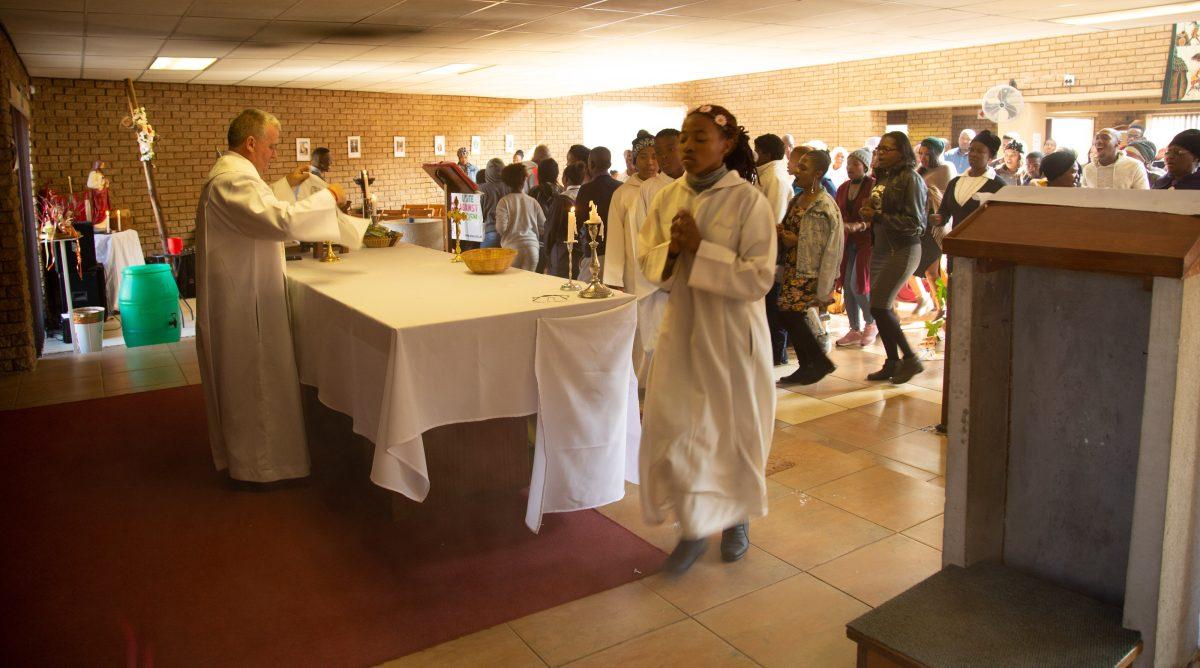Lenasia, South Africa — When Peter Joseph Cassidy, M. Afr., returned to South Africa last September after a 15-year absence from the country he had grown to love, he was hoping to see real change in the post-apartheid era.
Instead, Cassidy found himself frustrated by the lack of progress eliminating the effects of apartheid policies, which officially ended in 1994 with the election of Nelson Mandela as president of a democratic South Africa.
“It seems to me that we have created a society of economic apartheid,” said Cassidy, an Irish priest with The Missionaries of Africa, a Roman Catholic apostolic society that follows the Ignatian tradition of spirituality. “The poor, if anything, are even poorer today than what they were in ’94.”
Cassidy is the pastor of two parishes in the Johannesburg township of Lenasia, which was created in the 1950s by the apartheid government when it began enforcing racial segregation. At Saint Thomas Catholic Church and Saint Kizito Catholic Church, he has a front seat to the lingering effects of apartheid.
On June 15, Cassidy, whose parishioners affectionately refer to him as “Father PJ,” led an all-night retreat for the Saint Kizito youth to commemorate the June 16, 1976, student uprisings. At least 23 students were killed by the apartheid police and military during those uprisings, and hundreds were arrested in the ensuing violence and government crackdown on the youth.
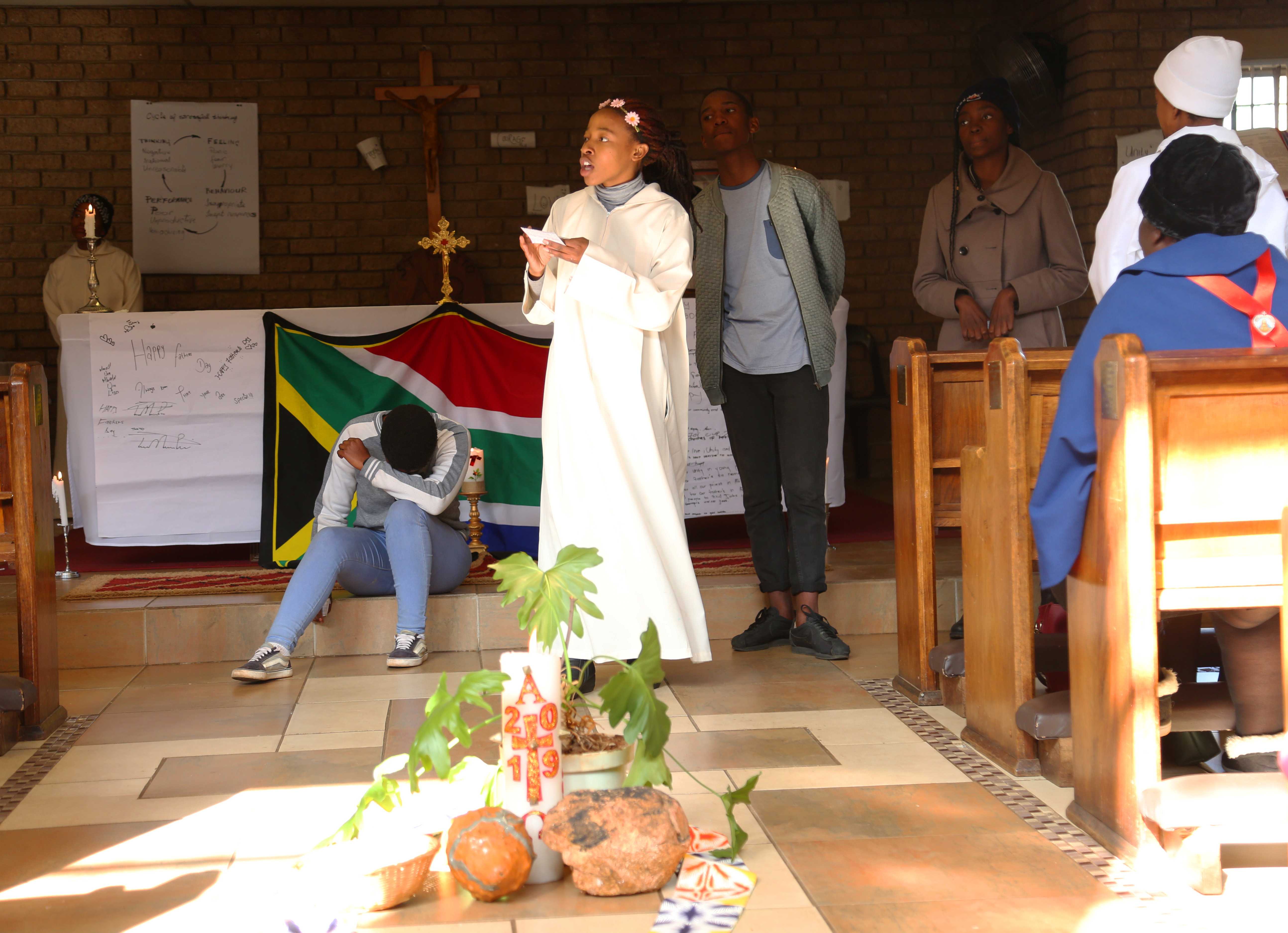
At a Youth Day Mass the next morning, members of the youth group shared performances and other projects created during the retreat. During an emotional speech about the significance of Youth Day, Jennifer Khati, a senior youth group member, said her generation is responsible for the future of South Africa.
“It is the youth of South Africa that can only sing freedom is coming tomorrow,” Khati told the congregation.
For now, at least in church, Khati said Cassidy succeeds in fostering a safe community where parishioners can overcome their problems.
“Everyone who leaves the church at the end of mass goes back home with a lively spirit,” Khati said. “They have left their problems at the church and go with a new spirit that is stronger than the one that came in.”
Some of the challenges Cassidy faces in his role as pastor are not much different from when he first arrived in Africa in 1990. Cassidy said he is unsure what exactly drew him to serve in Africa, but he knew other experiences during his discernment to become a priest had not felt right for him.
“I remember going on a vacation weekend with my local diocese in Donegal, Ireland, and it was not for me, it didn’t feel right for me,” Cassidy said. “I went to Zambia for a year. That was the year of prayer. I lived with South Africans as well, so I got a lot of exposure to their way of life and how they think about life.”
In 1991, Cassidy, then 23, began work in Mozambique with The Missionaries of Africa. He was stationed in South Africa on the border of Mozambique to assist the United Nations with a feeding scheme for refugees.
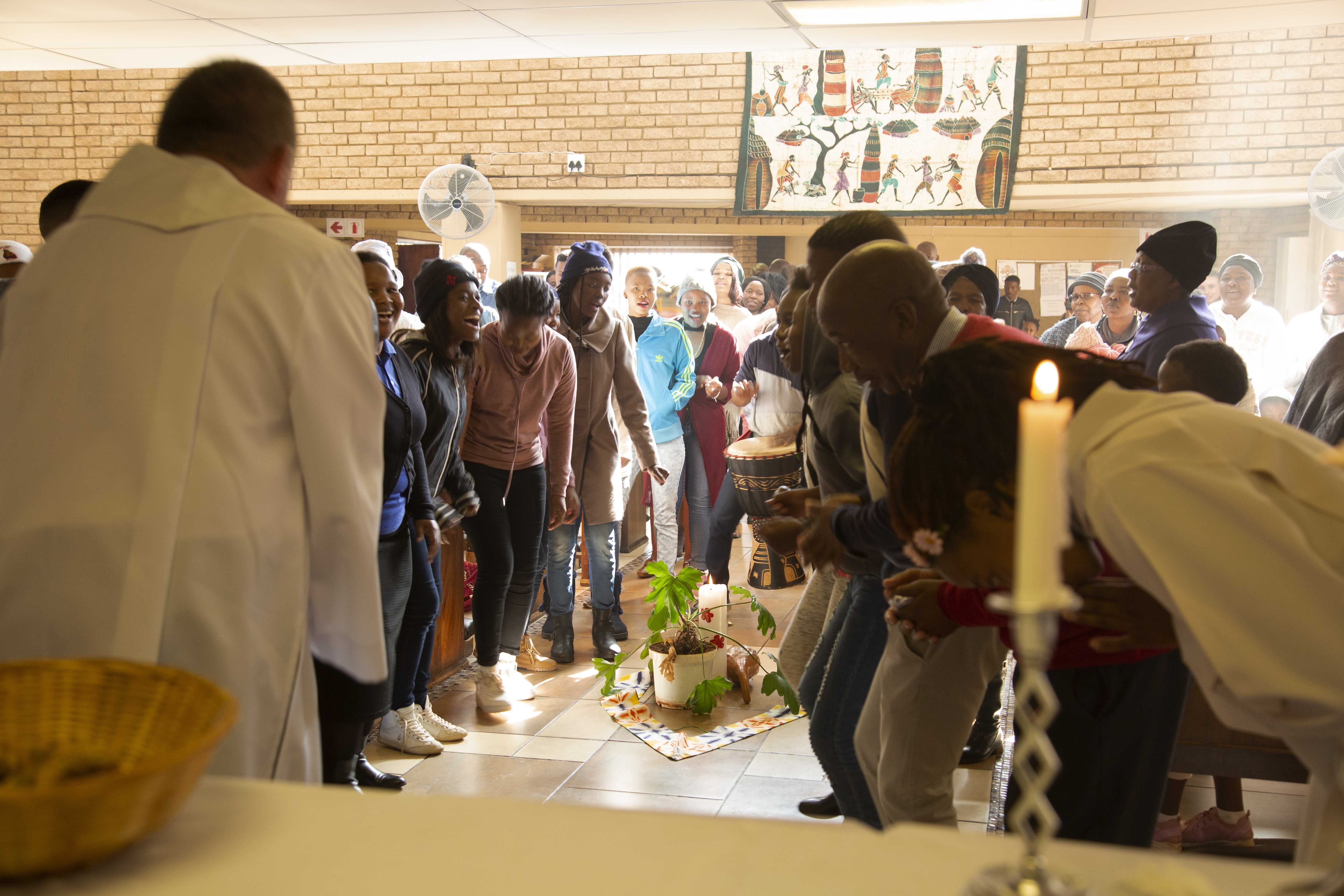
“We had a project for over a million refugees that were in South Africa,” Cassidy said. “We resided in South Africa, but we would cross the border at least three to four times a week.”
Although Cassidy left South Africa in 1993, before the 1994 elections, he helped refugees who struggled with illiteracy to learn the names and letters of terms that would be on the ballot, including the African National Congress (ANC), the liberation movement of Nelson Mandela and now a political party in the new democratic government.
“It wasn’t democratic [before], so it wasn’t a part of their life,” Cassidy said. “The fear being that the white government would use any excuse to disregard their votes, we realized we had to go back to the beginning.”
Eventually Cassidy, along with other members of The Missionaries of Africa, pressured the government and electoral commission to include symbols along with words on the ballots to ensure that illiteracy would not prevent citizens from voting.
After he left South Africa in 1993, Cassidy completed his theology degree in London and was ordained as a priest in his hometown of Donegal. Multiple African students whom Cassidy had studied with in London came to his ordination. They were the first Africans Donegal’s citizens had ever seen, he said. During his ordination, Cassidy’s African friends wanted to sing and dance in a typical vibrant African procession regularly performed during church services. It was a stark contrast to the more somber Irish-Catholic processions.
“They said, ‘We need drums,’ and I said, ‘There is no way you are going to get African drums around here, but the Irish bodhrán,’” Cassidy remembered. “They sang their hearts out. It was really beautiful and full of color.”
In 1997, Cassidy was sent back to South Africa through Mission Africa, an evangelical organization that does mission work in Africa. The first few years of democratic rule under Nelson Mandela’s presidency were challenging for the new government and for South Africans who were celebrating the end of apartheid rule.
“That passion you saw in [service] on Sunday, that passion was on the street,” said Cassidy, referring to the emotional performances at the Youth Day mass at Saint Kizito.
In 2004, Cassidy was called back to Ireland. What he thought might be a three- or four-year absence from South Africa became 16 years. While back in Ireland, he served as a chaplain in a hospital and worked on a committee to stop child abuse in the Catholic Church.
When Cassidy finally returned to South Africa in September 2018, his first priority was to relearn Zulu, one of the 11 official languages of South Africa and the language spoken by many of the Saint Kizito parishioners.
Cassidy said relearning Zulu was critical to helping him form deep connections with his parishioners.
“The people, they don’t see you as a white priest, they see you as their priest,” Cassidy said. “The big difference is that you make a big effort with the language and then you make an effort to be with them.”
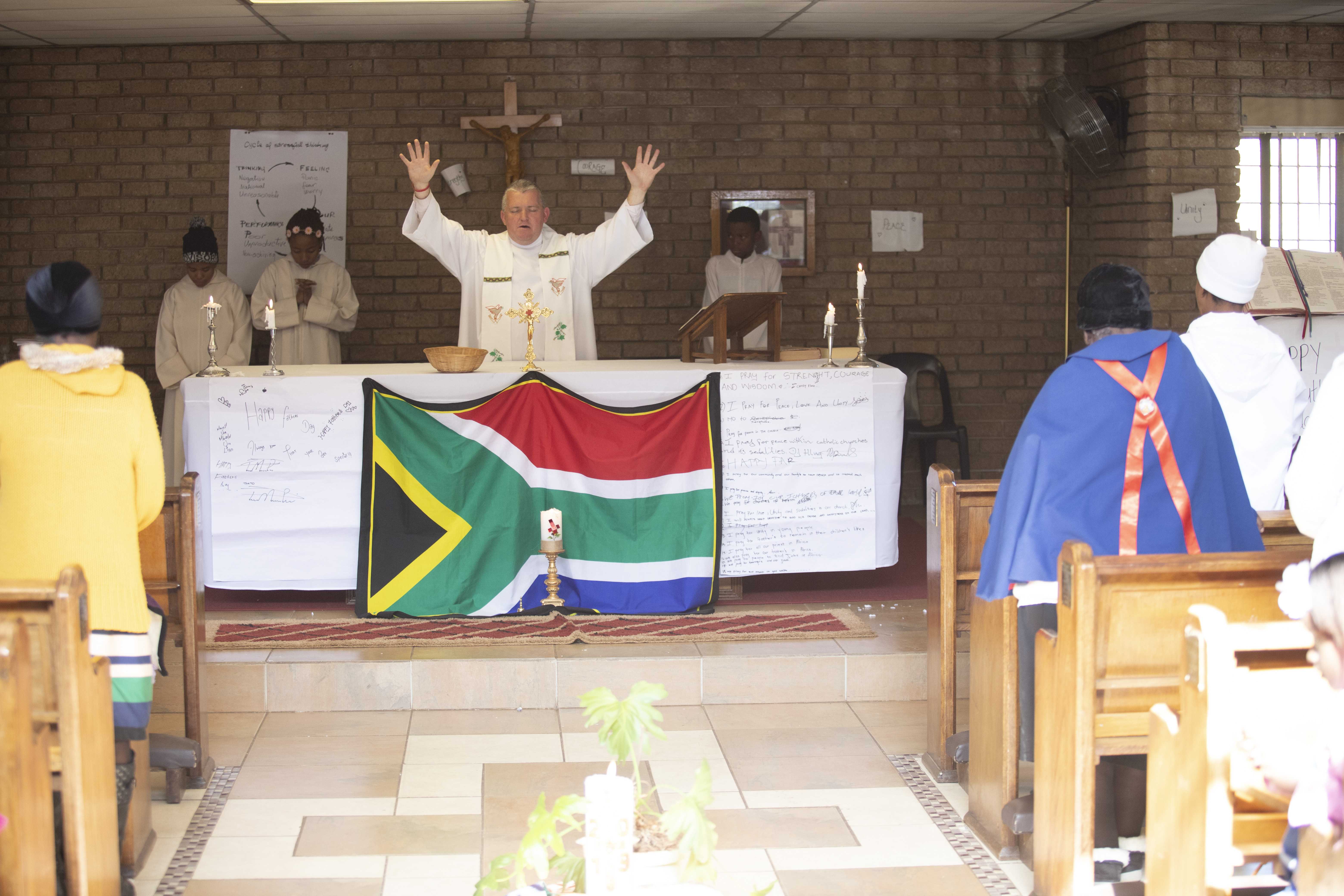
While the Catholic church is growing faster in Africa than in any other place in the world, the Catholic population in South Africa is relatively small. Only about 7.1% of the South African population identifies as Catholic, according to GCatholic, a nonprofit that provides comprehensive information about the Catholic Church. The number of African-born priests is on the rise, too. In fact, African-born priests, known as “reverse missionaries, are increasingly moving to the United States to assist U.S. congregations as the number of American-born priests has declined in the last 50 years.
In the predominantly nonwhite townships in South Africa, there are still white priests, Cassidy said. But people seem less interested in the color of his skin, he said, and more in what he can do to help.
“What the people of South Africa want is priests who are there for them in their hour of need and with them on their journey of life,” Cassidy said. “Be it a white or local African priest, they don’t particularly mind as long as you are there wholeheartedly. What is important is our attitude. An attitude of love will always replace race and our differences.”
Cassidy also said a priest’s willingness to learn the local language is important. Mathieu Van Vlierden, M. Afr., Cassidy’s housemate who works with Cassidy at the two churches in Lenasia, also speaks Sotho, another official language of South Africa.
“They are quite proud of us as there are not too many South Africa white people who speak their language,” Cassidy said.
Simphiwe Ntini, the leader of the youth group at Saint Kizito, said Cassidy’s willingness to learn and speak Zulu proves he is invested in the community.
“He really puts his heart out there when he works with people,” Simphiwe said. “He is a person who finds the best in everyone, basically that one person who holds the group.”
Despite the Catholic Church’s involvement in the challenging the abuses by the apartheid government, Cassidy said he is disappointed church leaders seem to be “taking a back seat” to combating the lasting effects of the regime.
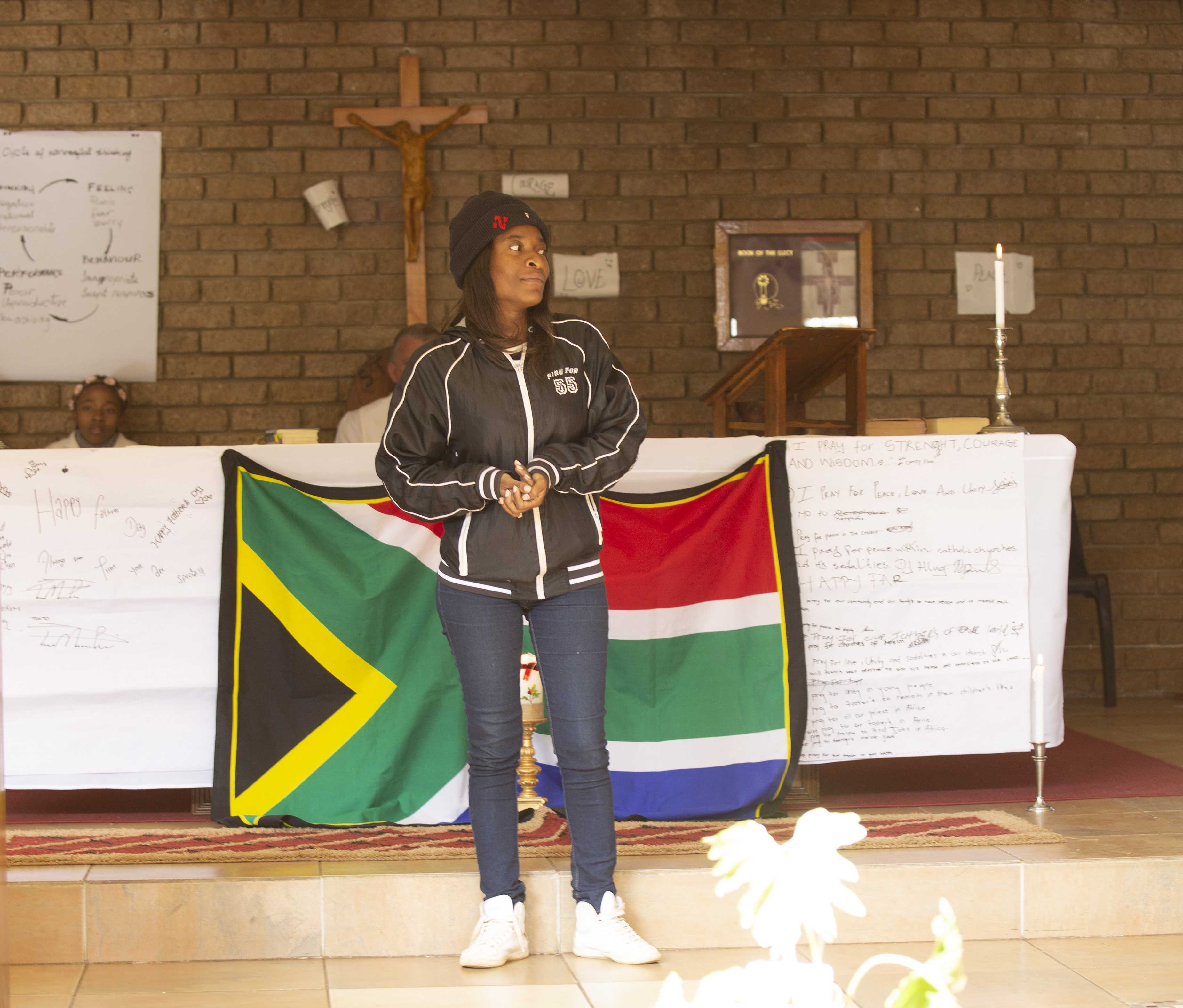
“You can pray all day every day, yesterday, the night before, but we have to be more than that as well,” Cassidy said. “It has to be a real social platform for people to voice their frustrations in South Africa. Collectively, we could do a lot more to be a voice for the voiceless.”
Van Vlierden said he admires Cassidy’s honesty and straightforwardness.
“He is genuine and very generous but he doesn’t take nonsense,” Vilerden said. “He is certainly not afraid to work. He takes care of the poor and the sick, [which are] his priorities.”
Cassidy said his most important role as a priest is to spend time listening to parishioners and building trusting relationships with them.
“If you visit them, see them, listen to their lives, listen to their journey of life, they then have a lot of trust in us,” Cassidy said. “It is it is a lifetime moment for us, not just for a year or two.”





































